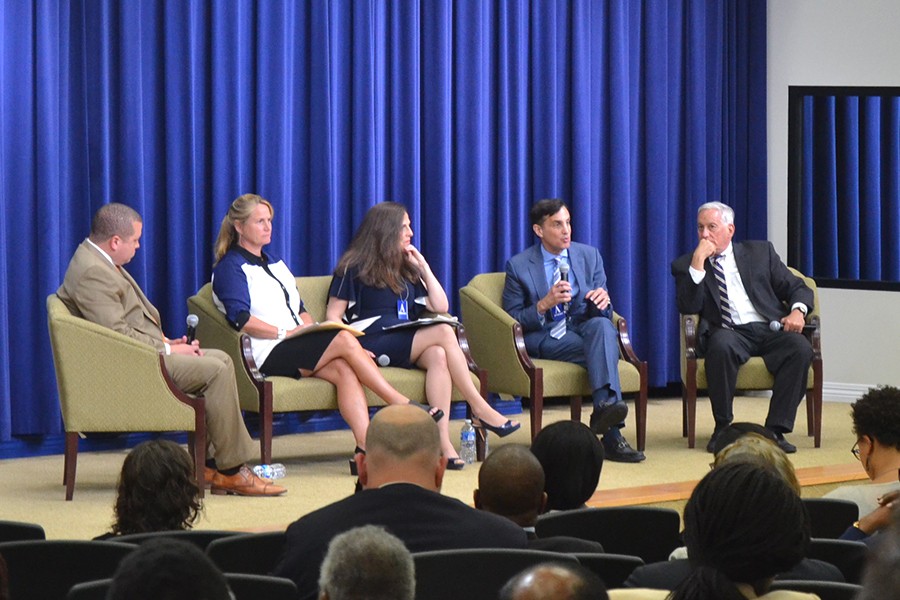Johns Hopkins University President Ronald J. Daniels was among the featured guests Monday evening at a White House event that brought together leaders from government, nonprofit organizations, and public policy groups to discuss social entrepreneurship in Baltimore.
The event, titled "The Front Lines of Social Innovation: Models for Change from Baltimore City," was held in the South Court Auditorium of the Eisenhower Executive Office Building.
Video credit: The White House
Daniels was among the participants in a discussion about scaling innovation for a broader impact. He was joined on the panel by Deb Smolover, managing partner for New Profit, a Boston-based social innovation organization and venture philanthropy fund; Anne Mosle, vice president at the Aspen Institute, a Washington, D.C.-based educational and policy studies organization; and Fagan Harris, president and CEO of city nonprofit Baltimore Corps.
The conversation was moderated by Walter Isaacson, a writer and journalist and the Aspen Institute's president and CEO. A recorded version of the event is available online; the panel discussion begins at approximately the 1:36.00 mark.
Daniels discussed Johns Hopkins' role as an anchor institution in Baltimore, noting that social innovation and economic opportunity are closely interrelated. He pointed to recent Johns Hopkins community efforts, including the HopkinsLocal and BLocal initiatives to expand employment and economic opportunities in the city.
He also discussed Johns Hopkins' involvement in a forthcoming Maryland program known as P-TECH—Pathways in Technology Early College High School—designed to better prepare high school students for entry into the job market.
Daniels emphasized that it's important for institutions like Johns Hopkins to create a sense of urgency for change.
"I think it's very easy to get complacent," he said. "We know that after the unrest of last year, there was a moment for a breakthrough. And yet we also know that with each and every passing day, for as much as had happened, not enough has happened. … There are so many parts of our city that are resigned to the continuation, reluctantly, of the status quo. And I think that's where it's really important that establishment and leadership is insistent on a different trajectory."
Other speakers at the event included Baltimore City Health Commissioner Leana Wen, who addressed innovation in city government; and Sarah Hemminger, a Johns Hopkins graduate and social entrepreneur who co-founded Thread, a Baltimore-based organization that brings together teams of volunteers to support underperforming students from the city's public high schools.
Posted in Voices+Opinion, Politics+Society, Community
Tagged president ron daniels, community, baltimore








